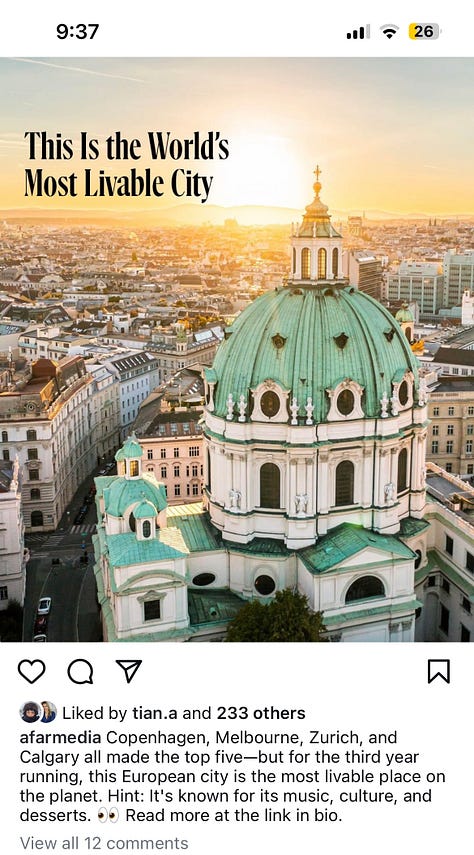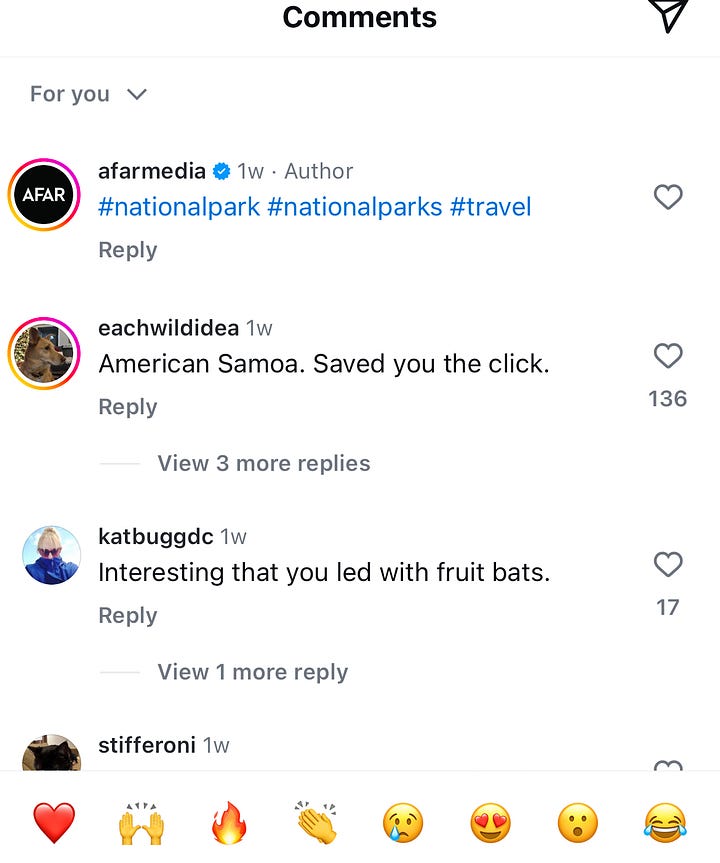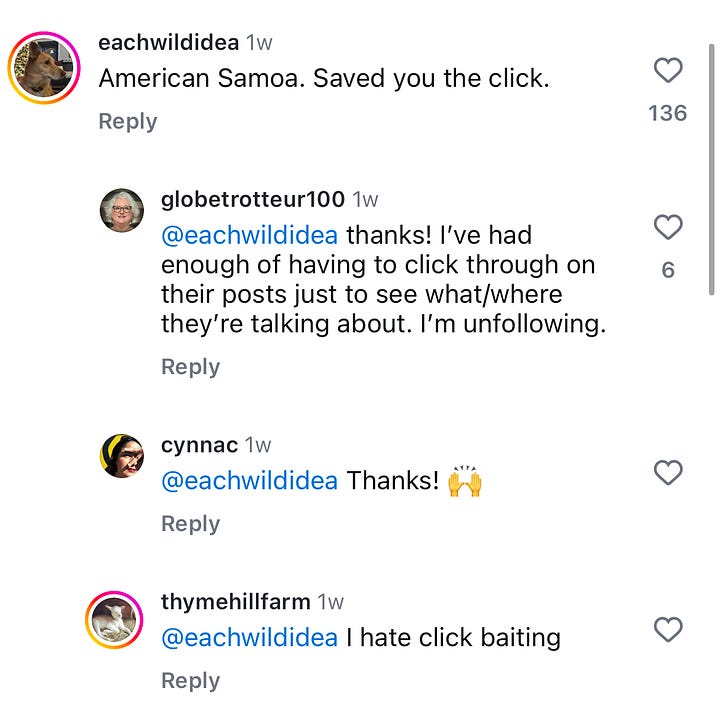The Case for Clicking On A Link in Bio
When did we become angry about being asked to read an article?
POV: You’re scrolling on Instagram and Afar or Travel + Leisure or one of the other travel magazines you chose to follow just went live with a social post. It features a stunning image of a gorgeous city you don’t recognize. But to find out, you’re going to have to work for it.
The post reads, ‘This town in France is the destination of the summer’ with a brief but vague description in the caption. At the end it reads, ‘check our link in bio to be swept away to the countryside.’
People who follow these magazines, and maybe that’s you, have grown to hate being asked to click the infamous “Link in Bio,” something crafted by Instagram as they don’t allow for in-post links. Once prompted, commenters flood the social post with,
“It’s Bordeaux. You’re welcome.”
“We’re not reading your Link in Bio.”
“I DON’T HAVE TIME TO READ YOUR ARTICLE JUST FOR THE LOVE OF GOD TELL ME IF THIS IS WORTH MY TIME.”



The digital world moves fast, no one has time to read, and gatekeeping is one of the newest and worst digital sins. It doesn’t matter if you’re a brand, publishing house, or a magazine, people don’t want to click on your link in bio which will then take them to your website to read an article they find interesting. For some reason, that’s wrong.
Heroes who come into the comment section to give up the key points of a magazine article are what Shmoop was to the novel. But while college asked us to quickly read long novels (even though we had other classes and work to juggle), all Condé Nast Traveler or the Atlantic are asking you to do is click the link in bio to be taken to their website. This has always been and should continue to be where the article lives and you don’t even have to read it if you don’t want to…so why are people so annoyed?




I think the answer is that we have become so entitled to information that we are mad when we are asked to read an article, but I’d argue that if you don’t have time to read the article then don’t. Simple as that. We shouldn’t let ourselves get into the habit of information entitlement without doing the work of reading the context by which that information lives. And why would we prefer it that way?
It could be a case of our attention spans that are said to be dwindling thanks to short-form content. For Slate, writer Farhad Manjoo wrote about the data that showed a diminishing amount of attention in relation to an article’s length.
“When people land on a story, they very rarely make it all the way down the page. A lot of people don’t even make it halfway. Even more dispiriting is the relationship between scrolling and sharing. Schwartz’s data suggest that lots of people are tweeting out links to articles they haven’t fully read.”
But the anger towards being asked to read, to take our attention away from the endless scroll of Instagram, is a new phenomenon that I honestly find baffling. I go online so that I can be taken down a rabbit hole of articles, links, and information. I thought we all did. So then why are we mad that we’re being asked to go read an article?
I imagine the reasons why we want information so quickly is for a few reasons. Information moves at such a rapid rate that we feel that we can’t keep up without cutting corners. It also gives us a quick dopamine hit whenever we learn a new fact. It also makes you feel like part of a conversation. But if you were talking with someone and you mentioned that Bordeaux is the hot, new summer destination and they asked why? Well, you didn’t read the article, so you don’t really know.
We remember facts when they are embedded into context, experience, or stories. We must be able to associate these things with our emotions or with a memory or with our senses to remember it, to give it any meaning.
By refusing to click a Link in Bio you are robbing yourself of knowledge, context, imagery, and meaningful information. You are bullying writers and brands and playing white knight to people who may learn a piece of information and forget it as quickly as a blip in the system. And it’s not the valiant effort we’ve all made it out to be.
In a culture that moves too fast and wants to slow down, maybe we all should be taking the time to click that Link in Bio and slowly read something, anything.




